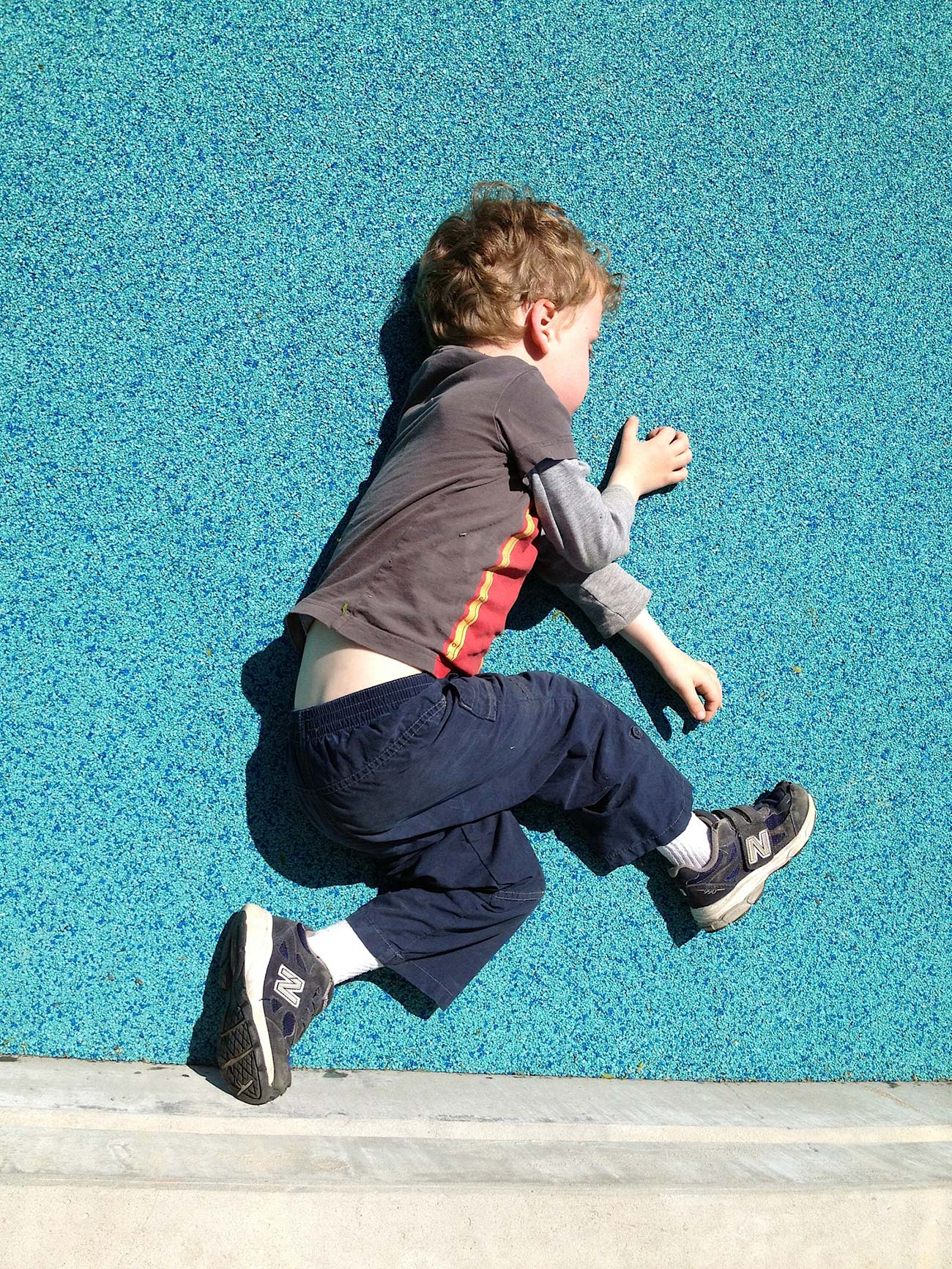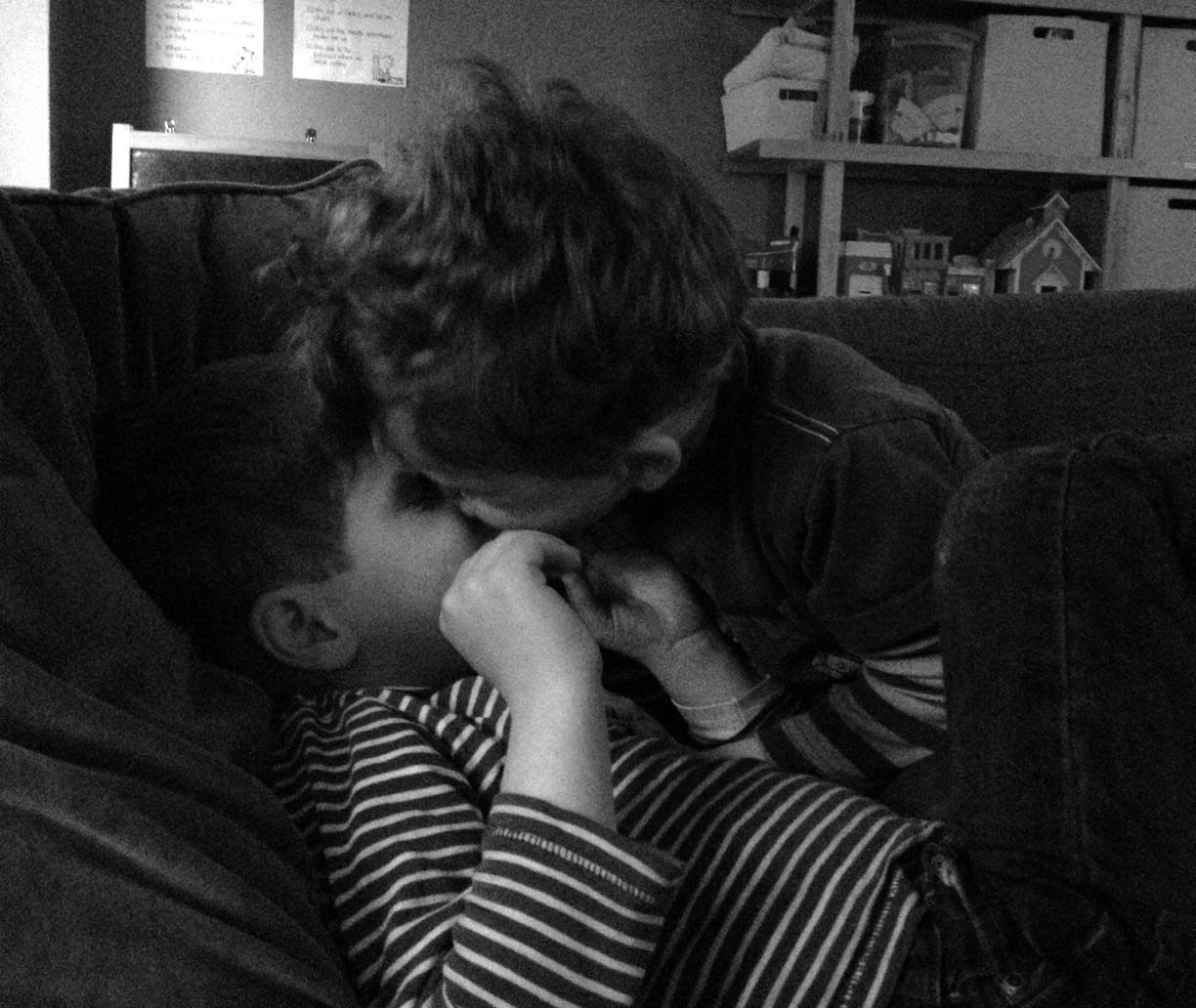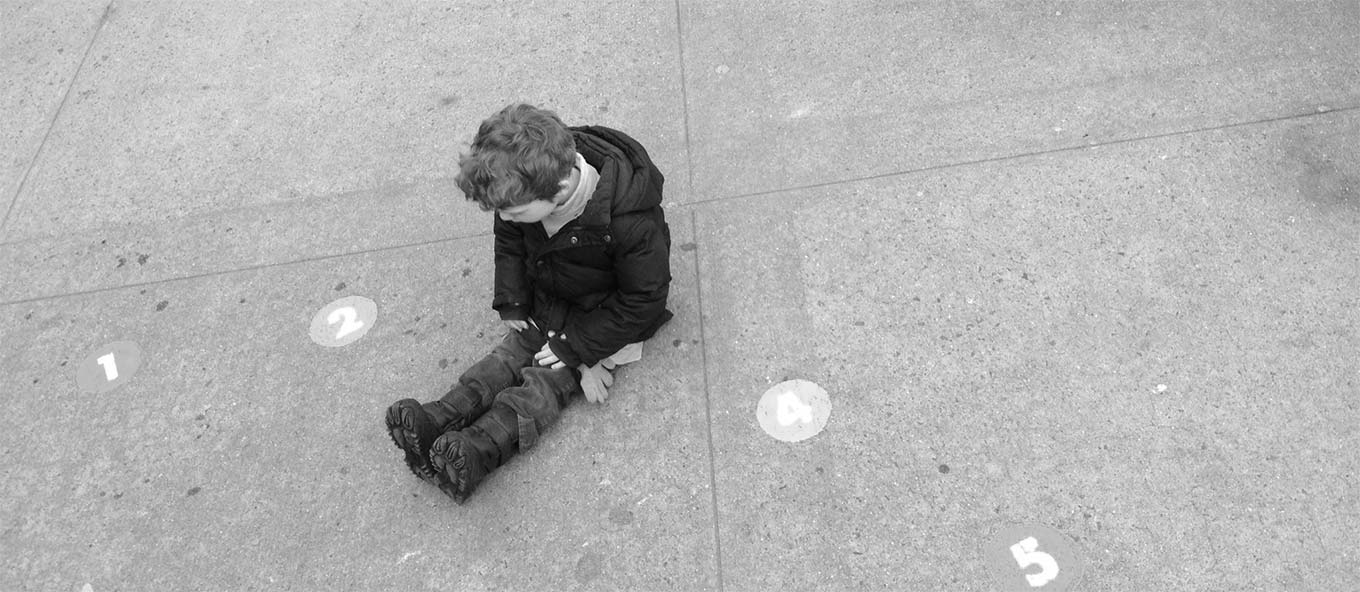 When things are crowded, bustling and noisy, C will often find a quiet place to relax.
When things are crowded, bustling and noisy, C will often find a quiet place to relax.
Such was the case this Sunday at a busy playground: C was having a ball running around and generally making merry when I think it got to be a bit much for him. He didn't have a meltdown or otherwise fall apart. Instead, he found a nice soft patch of blue foam flooring (did I mention this was a pretty cool playground?) and chilled out for a few moments. That's when I snapped the photo above...a break from all the black and white on the site for a change.
Once, when we were at an apple farm, C disappeared. We found him a few moments later inside the empty engine compartment of a tractor, his big eyes and wide grin beaming in the dark refuge he'd found for himself.
A few weeks ago we were at a local playground when C was lying on the ground at the bottom of a slide. Kids were going right off the edge over him, oblivious to his presence, and he was happy as a clam lying there on the ground, getting dirty as a chimney sweep, but still being part of the action in his own unique way.
A concerned mom walked over to me and said, "I think something may be wrong with your son."
"No, he's okay. He does that."
"He's been lying there for about 45 minutes. He might be sick."
"No, he's smiling. See? He just likes to lie quietly sometimes."
"Are you sure? I mean, kids are going right off the slide over him. He could get hurt."
"He's fine. I think this is his way of playing with the other kids."
Raised eyebrows. "If you say so."
I do say so.
I no longer see these moments of separation from social action as problematic; I'm coming to appreciate his ability to know his limits and find a little bit of calm.

 Just a moment. What's happening here? The boy with autism has gone in for the kill...er...kiss.
Just a moment. What's happening here? The boy with autism has gone in for the kill...er...kiss.